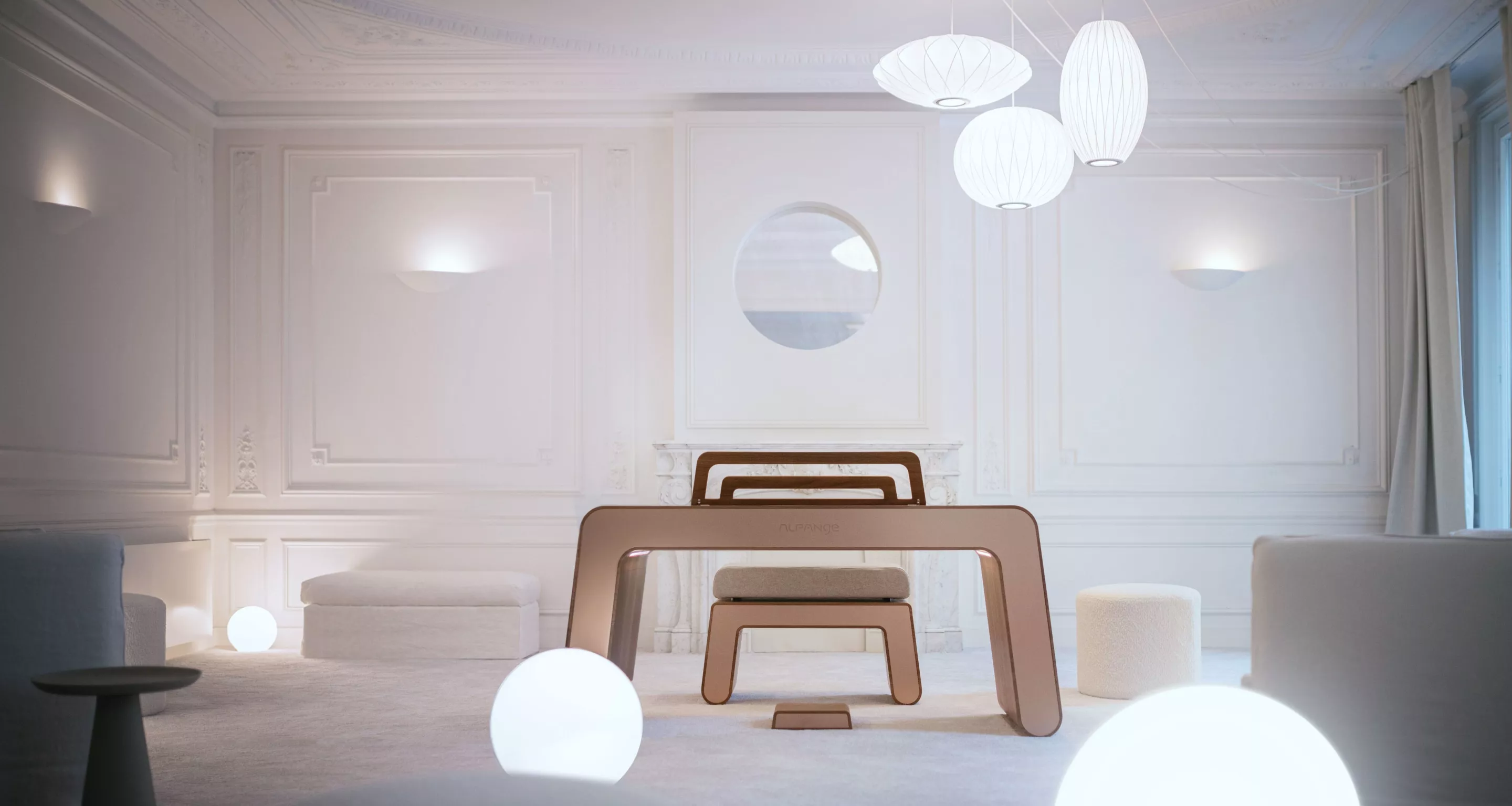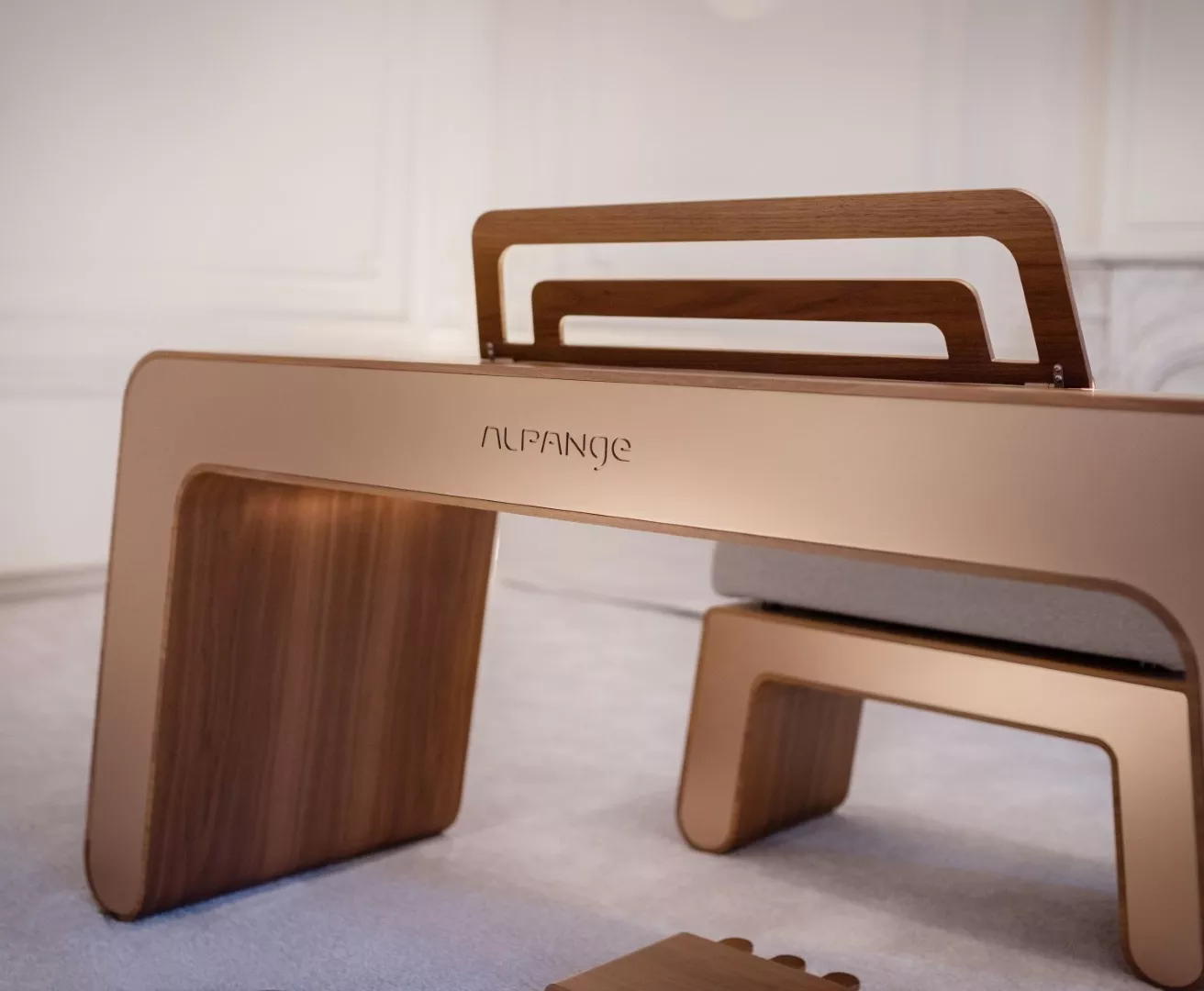
Alpange and Rising Stone collaboration
The collaboration between the famous piano brand Alpange and Rising Stone seemed evident, each actor continually striving for excellence and an unwillingness to comprise the designs, emotions and quality of their products.
Emotion at your fingertips
Born in the French Alps, the Alpange pianos are the achievement of a dream carried by two entrepreneurs passionate about music, technology and design: Raphaël Soudre, pianist since childhood and trained at the Lyon Conservatory AND Frank Bacquet, software engineer.
“Our objective was to re-enchant the instrument while keeping its soul, giving it a new power thanks to technology,” explains Raphaël. The next step was to approach design with an absolute demand for manufacturing quality and choice of materials. “This is where we found common ground with Jean-Thomas Olano, in a quest for the absolute. We were unwilling to compromise our choices in terms of design, structure, material, technology…”
Today approximately twenty experts in their domains work to assemble the Alpange pianos in Nantes. More than 95% of the wood, structures and placings are cultivated, transformed and assembled in France. (phrase to be in photo caption) The piano is available in 3 different wood varieties: maple, walnut and ash, but can also be tailor-assembled with other wood varieties or materials.
Beyond the material
“The music vehicles something that surpasses us. There is the dimension that is very tangible in the Alpange pianos like the materials and the components, then there is the imaginary, the artistic, the work and the creator’s approach touching us beyond the material. This notion links us also with Rising Stone: the craftsmanship invites our senses, putting us in an emotional state higher than a purely practical dimension.”

Acoustic excellence at its summum
A revolutionary algorithm calculates in real time the reaction of the physical components of the piano. At the contact of each key, the musician senses the energy of the virtual cords and the harmony table vibrating under its fingertips. “The complexity of the traditional piano’s sound, all of its “imperfections” which make it a living instrument, that is what we are calculating.” The tactile multi-sensorial experience is magnified by 14 acoustic diffusers and the instrument also integrates a wireless microphone to diffuse the voice in the acoustic system.
Alpange has already seduced professional pianists and knowledgeable connoisseurs, but they are equally targeting “non-pianists who love the piano”, because thanks to its software application Alpange Peaker, the piano can play alone. The application also allows the pianist to adjust the timbre of the instrument by simply sliding a finger on the smartphone screen. Icing on the cake: each piece played is saved in a cloud with infinite memory!
The adventure is just beginning, the first pianos, with a fabrication limited at 80 per year, are actually being played in France, the United States and in Japan. They are installed in individual’s homes, with hotel professionals and interior designers.
